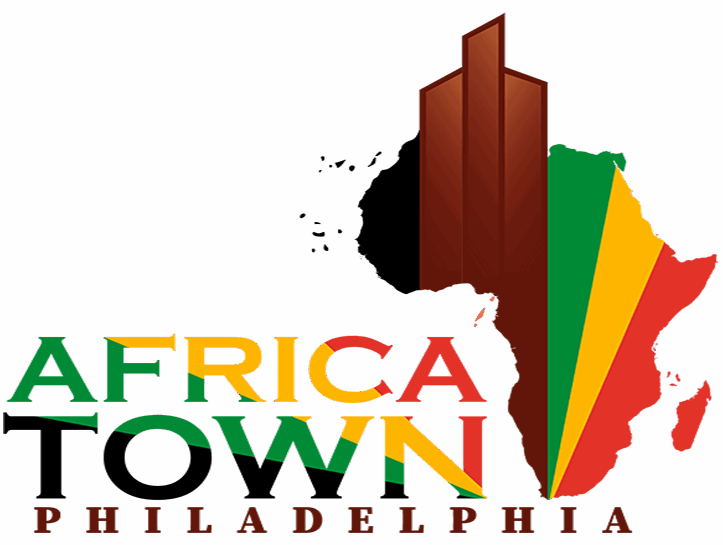History of Africatown
Africatown is designed to become an economic development initiative to create jobs, in Southwest Philadelphia and increase business ownership among the residents.
The City of Philadelphia has always been known for its diverse populations and diverse “neighborhoods.” Over the last 25 years the newest addition to these communities has been from the African and Caribbean immigrants that have added to the character of our city and enhanced the cultural landscape. While these Black immigrants have made numerous contributions to Philadelphia, they have been largely marginalized. However, beginning in 2000, former Councilwoman Jannie L. Blackwell created Echoes of Africa. This organized program, with Black immigrants, created an annual African and Caribbean Festival in Malcolm X Park. This event contributed to an understanding that Black immigrants are in Philadelphia to stay.
The official recognition of Black immigrants came in June 2005, when former Mayor John F. Street and then Councilwoman Jannie L. Blackwell signed an executive order creating the Mayor’s Commission on African and Caribbean Immigrant Affairs (MCACIA). This historic step made Philadelphia the first city in the United States recognizing Black immigrants in such a manner. Black immigrants had begun to make their mark as workers, consumers, taxpayers, business owners and voters in Philadelphia. At the same time the MCACIA was being organized, several Black immigrant groups became founding members of the organization. This included the following organizations:
- ACANA
- AFRICOM
- Caribbean Festival Committee
- Echoes of Africa
- Ethiopian Community Association of Greater Philadelphia
- Ghana Community of Philadelphia
- Haitian Coalition of Philadelphia
- Honorary Consul of Guinea
- Honorary Consul of Jamacia
In addition to the founding members of the MCACIA, it was soon learned that Greater Philadelphia had over 50,000 Black immigrants from 30 African and Caribbean countries. Black immigrants live in all areas of the city, however, a majority live in Southwest Philadelphia. In Philadelphia, the Black immigrant population comes from a number of nations like Liberia, Ethiopia, Nigeria, Ghana, Senegal, Cameroon, Côte d’Ivoire, Sudan, South Africa and from many Caribbean countries including Bahamas, Barbados, Jamaica, Haiti, Saint Kitts and Nevis, Trinidad and Tobago. Since the formation of the MCACIA in 2005 the Black immigrant population has grown significantly. A recent Pew Research Center report found that in “Pennsylvania the Black immigrant population jumped by 156%, and Philly’s increased by 121% between 2000 and 2019.” The report also estimates that the Black immigrant population in Philadelphia is over 120,000 and still growing.
The economic influence of Black immigrants is significant both on a national and local scale. A recent report by the New American Economy highlights that in 2018 alone, Black immigrant households generated $133.6 billion in earnings, contributed $36.0 billion in taxes (with $22.8 billion in federal income taxes and $13.2 billion in state and local taxes), and possessed a spending power of $97.6 billion. This robust economic activity is also evident in Southwest Philadelphia, where a substantial population of Black immigrants and their community-based organizations delivers a broad spectrum of essential services. These organizations offer vital programs that provide access to healthcare, immigration support, literacy and educational initiatives, and computer training, significantly enhancing the well-being and economic resilience of the entire community.
In Southwest Philadelphia, the entrepreneurial spirit and business acumen of Black immigrants are unmistakably on display. Approximately 700 businesses in the area generate nearly $500 million in annual revenues, with many of these enterprises concentrated along the bustling corridors of Baltimore, Chester, Woodland, and Elmwood Avenues—a dynamic cluster that has earned the international nickname “Little Africa,” as highlighted by media outlets such as the BBC and France 24. Despite historically receiving limited support from public sector organizations, these business owners have consistently reinvested in their ventures and their community. Now, thanks to the introduction of several new initiatives funded by the Philadelphia Department of Commerce and implemented by ACANA, essential public sector resources are increasingly available to support Black immigrant and other small businesses in Africatown, paving the way for enhanced economic empowerment and sustainable growth.
By systematically identifying existing community assets and driving targeted investments, we anticipate the attraction of further public and private funding. This support could manifest in enhanced transportation, the redevelopment of publicly owned vacant properties, curated artwork, improved streetscapes, and upgraded sidewalks. Such infrastructural and aesthetic enhancements will reinforce the business community’s ongoing efforts to position Africatown as a premier destination for tourists and the Global African Diaspora. With over 120,000 Black immigrants from more than 30 African and Caribbean nations residing in Philadelphia, leveraging technology and executing the proposed Africatown initiatives will undoubtedly make a significant and lasting difference.
Join us to make a difference!
